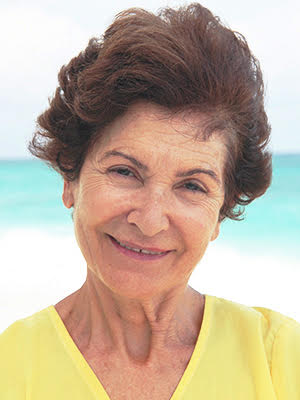Sivananda Bahamas Blog
Expand Your Horizons …
Our Blog
De-Stressing 101
By Silvia San Miguel (Surya). Reposted here with the authors' permission.
We all know the negative impact of stress on our physical, mental and emotional health. Another thing is to know what to do to live stress-free. A moderate level of stress is a normal part of life, but sometimes stress remains below the radar and does not necessarily become evident as in a panic, rage or anxiety attack. The result is that we learn to live with a chronic state of agitation, of being off kilter and out of balance.
It is important to distinguish between traditional stress and the amount of agitation we experience every day. Here I want to look at certain behaviors and feelings that we may have become accustomed to but that are warning signs indicating we are moving into a zone dangerous for our health. This is the first step in managing stress, before it manifests.
- Do you need a cigarette to relax?
- Do you need a drink to relax or have fun?
- When you are hungry, do you feel unsettled if you cannot eat right away?
- Do you eat, even if not hungry?
- Is it difficult to turn the mind off when going to sleep?
- Near bedtime do you postpone going to bed?
- If you awake in the middle of the night, do you find it difficult to go back to sleep quickly?
- Do you find it difficult to slow down?
- Do you like the feeling of being wired?
- Do you seek constant stimulation?
- Are you uncomfortable in idle unstructured time?
- Do you drive fast even when not in a hurry?
- Are you impatient in line at the grocery counter?
- Are you constantly checking your e-mails or texts?
- Do you multitask?
- When you are on vacation, are you still looking to be constantly busy?
- If something is not the way you wanted, do you become agitated?
- Do you obsess about little things?
- Do you expect perfection from yourself?
- Do you expect perfection from others?
The point of this quiz is to become aware of our level of agitation, which might be manageable but that we have not recognized until now. Or if you answered yes to most questions, this could be the time to consider making some lifestyle changes.
The 5 Points of Yoga taught by Swami Vishnudevananda in his book The Sivananda Companion of Yoga can help you make those changes in the following areas:
- diet (mainly vegetarian, no stimulants)
- exercise (yoga, swimming, walking -- not too much, not too little)
- relaxation (knowing when to take a break and learning relaxation techniques)
- proper breathing (full abdominal breathing)
- meditation (breath mindfulness, mantras)
These are the pillars of a healthy lifestyle advocated not just by yogis but more and more, by the medical profession. In the medical journal The Lancet of September 16, there is an oncology article reporting on a study carried out by Dr. Dean Ornish showing that stress-reducing activities as the ones mentioned here may increase the length of the telomeres in the white cells. The telomeres are the caps at the ends of chromosomes that protect them from deterioration. This is probably the first time that a study looks at the connection of a stress-free lifestyle and the reversal of aging on a cellular level.
I encourage you to give your attention to these warning signs and take action before serious health damage occurs.
Continued in De-Stressing 102.

Surya (Silvia San Miguel) is an educator and a certified Sivananda Yoga teacher who studied with Swami Vishnudevananda. She integrates her studies of other wisdom traditions with yoga while teaching at Sivananda ashrams in Canada, India, and the Bahamas and in private venues in Montreal and Spain.








